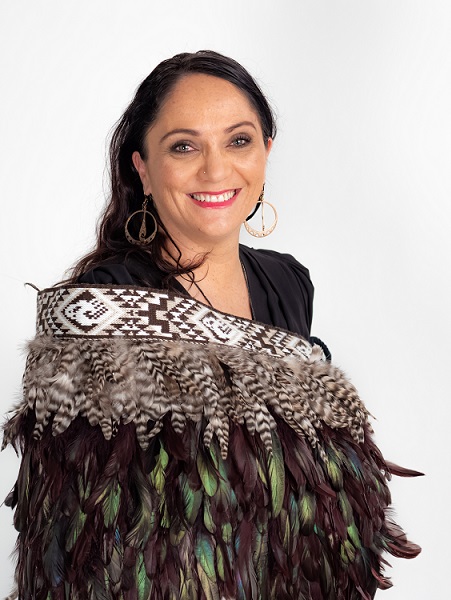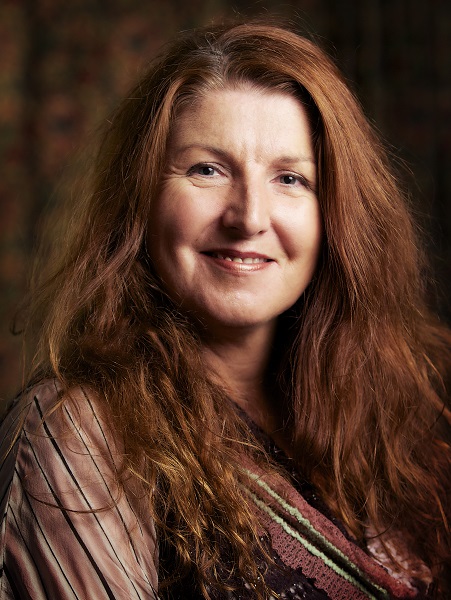 Melanie Mark-Shadbolt
Melanie Mark-Shadbolt
2021 Women of Influence finalist: Environmental champion
Melanie Mark-Shadbolt is of Ngāti Kahungunu ki Wairarapa, Ngāti Porou, Te Arawa, Ngāti Raukawa, Ngāti Tuwharetoa, Te Atiawa, Mackintosh and Gunn descent. Melanie was awarded an Executive Master of Business Administration from Massey. Committed to creating a healthier environment for all New Zealanders, Melanie’s role as Deputy Secretary Tūmatakōkiri (Māori Rights & Interests) for the Ministry for the Environment means she plays a key role in the environmental sector. Melanie’s expertise in biodiversity, biosecurity, and driving environmental outcomes are underpinned by an indigenous worldview and mātauranga Māori (Māori knowledge).
Melanie is a co-founder and the CEO of Te Tira Whakamātaki, a Māori environmental not-for-profit and home of the Māori biosecurity network. Melanie was previously the Director Māori of NZ’s Biological Heritage National Science Challenge, one of 11 National Science Challenges funded by the government, which aims to protect and manage Aotearoa New Zealand’s biodiversity, improve our biosecurity, and enhance our resilience to harmful organisms.
Melanie also sits on numerous boards, committees and advisory groups including the boards of Project Crimson/Trees that Counts, Tāpui Aotearoa, Better Border Biosecurity, and the Resilience to Nature’s Challenges National Science Challenge; advisory and working groups for Kauri Dieback & Myrtle Rust, Predator Free 2050, wallaby eradication, and a number of research programmes. She also supports a handful of Māori committees.
Melanie reflects that the “most important thing I gained from my time at Massey was a network of talented, passionate and supportive people, who’ve remained in my life as colleagues, advisors, supporters and advocates.
I remember the collegial environment that was our South Island cohort and the desire we had for everyone to succeed, which countered many of the overly competitive environments friends of mine found themselves in, in other MBA programmes, and to ensure no one was left behind. The acceptance from Massey staff that the whole cohort wanted to succeed as one was impressive, as was the acceptance that whanaungatanga and manaakitanga are a vital part of executive business management, and therefore should be practiced in our learning environment.
More specifically, I remember the many social events and amazing times I had with very cool people. Academically I still chuckle about a group project we had as part of a change management paper where the client we were working for was operating in an emerging space that professionally I was also working in. I remember being extremely frustrated that my advice to the client to "move quickly and capture this emerging space" was dismissed.
The eye opener for me came less than four years later when I was a very senior leader in that space leading and delivering large programmes and bumping into those clients who were still struggling to get a foot in the door. I realised then that my teammates and I were innovators, willing to take risks, try new things, adapt, change and move with what we were seeing around us, all skills the programme helped hone. But for risk adverse people, or people who don’t like agile spaces, those are ways of operating that are scary and need a heavy coaching hand. The lessons just keep coming, even after you’ve left the programme.”
Words of wisdom
Melanie’s advice to new grads is, “Make friends and build a network. Invest in that network – it’s one of the most important tools in your kete. Be inquisitive about everything. Those who can straddle disciplines and have transferable skills are in high demand. Take opportunities, especially in places that will support you to grow and empower you to lead.”
In considering the biggest lesson for her as a leader, Melanie says, “Adding this because my leadership journey is ever evolving and there are things that I wish I knew ten years ago, and wāhine Māori, especially young wāhine Māori, need to hear this:
- You are way more talented, and smarter than you give yourself credit for. Back yourself.
- Loyalty is important but so is your growth. Leaving an organisation once you’ve done and given all you can is not a bad thing. Moving on is about sharing your talents and continuing to grow.
- Vulnerability is not weakness. This has been the hardest thing for me to learn, but vulnerability makes you real. Your people want real leaders.
- Know when to lead and when to empower. I truly believe there are times when command and control leadership is needed. But equally you need to empower others to lead knowing you will support them in that journey.
- Be guided by your values. I aspire to be mana enhancing in all that I do – it is central to who I am and who I want to be. I’m not perfect, I mess up, but I believe that what I do should not diminish or take away from anyone or anything. If I can’t enhance the mana of others, and by doing so enhance my mana, then I’m probably not really contributing.
2021 Women of Influence Finalists

Cheryl Reynolds
Endangered species advocate
Read Story